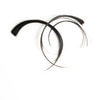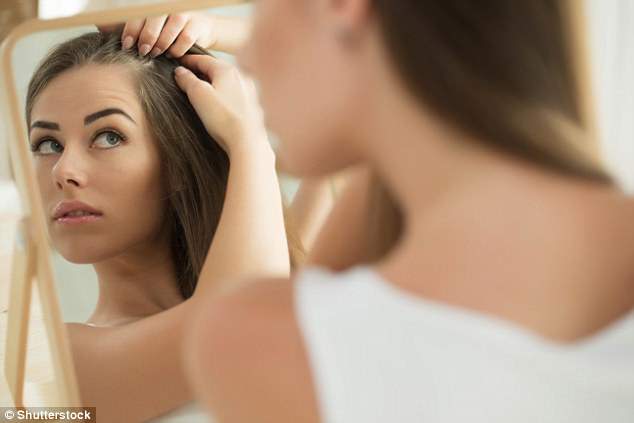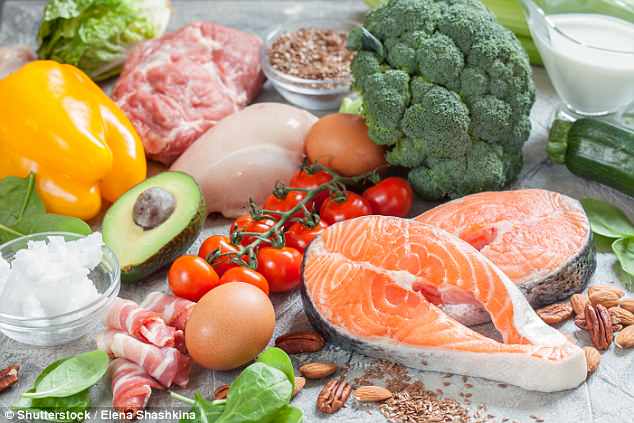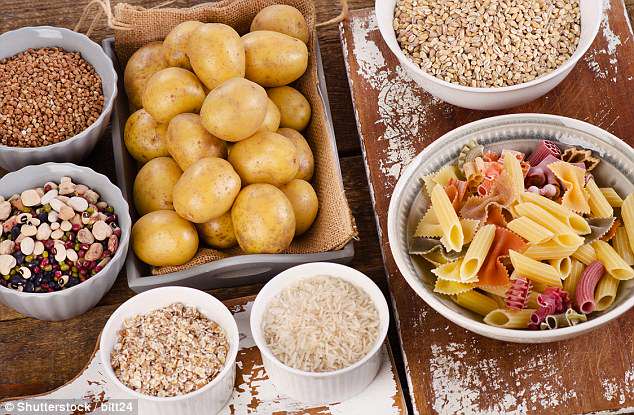|
5/12/2018 Eat Your Way to a Healthy Head of HairScalp expert reveals the secrets to regaining fuller locks - and it all starts with six essential nutrients
They say we are what we eat. But not eating enough nutrients can lead to dry scalp, brittle locks or even hair loss. Australian trichologist Simone Lee said the secret to growing healthy hair all starts with your diet. She revealed the six essential nutrients - proteins, carbohydrates, fats, vitamins, minerals and water - to help strengthen hair tissue and promote growth. Here, she shared the foods that contain the right nutrients for healthy hair. Nutrition is the interrelation between organisms in the body and nutrients that have been transformed from digested food and ingested by the body's organisms,' Ms Lee said. 'A failing in the conversion and absorption of nutrients from food will affect the cellular activity within the body and ultimately can result in the occurrence of disease, unhealthy hair and even hair loss. 'Consuming appropriate amounts of the six essential nutrients is the key to growing healthy Hair.' PROTEINS Hair is made up of protein so if you are not eating enough protein, this would subsequently cause hair loss. There are four key amino acids necessary to produce hair keratin - cysteine, lysine, arginine and methionine. 'Of these amino acids lysine and methionine are classified as essential, meaning they are not formed by the body and must be made available through our diets,' she said. She explained you can also top up your intake of protein by eating lean meats such as chicken, fish, beef, pork or lamb - or dairy products such as eggs, milk, cheese and yoghurt. 'Consuming combinations of vegetables that are high in proteins like peas, beans and soya beans are a great way to boost protein levels within the body,' she said. CARBOHYDRATES 'Carbohydrates are essential for a well-balanced diet. When the carbon system unites with oxygen in the blood stream, immediate calories used for energy by the body are produced,' Ms Lee said.
'This energy helps divide the cells in the hair matrix and germinating layers of the skin. Carbohydrates help regulate protein and fat metabolism.' Simple carbs or sugars can be found in natural foods including fruits, honey, milk and vegetables. 'Some great sources of complex carbohydrates are beans, lentils, peas, whole grains and starchy potatoes,' she said. FATS 'Maintaining body functions is assisted by a healthy intake of fats,' she said. 'Vitamins must have fat to dissolve and nourish the body. and polyunsaturated fats help keep hair shiny. 'Fatty acids essential such as linoleic (Omega 6) and Linolenic acid assist in inadequate oil production from the sebaceous gland. Omega 3 can be activated in the body through consumption of linseed and marine oils from salmon, tuna and sardines. Deficiencies in magnesium, zinc and vitamin b6 may result in inhibited Omega 3 and Omega 6 pathways within the body which can cause hair loss. VITAMINS Fresh fruit, green vegetables and grains are a great source of water soluble vitamins. Vitamins connected to maintaining healthy hair and scalp are: Vitamin A - helps prevent dry hair, and maintaining a healthy skin. Found in carrots, liver and green vegetables. Vitamin B (thiamine) - assists in prevention of dandruff and red skin. Found in liver kidneys and green vegetables. Vitamin B (pantothenic acid) - Helps maintain hair colour and possibly prevent early greying. Found in mushrooms and liver. Vitamin B (folic acid) - Required for cell multiplication. Found in liver, kidneys and green vegetables. Biotin - Water soluble B vitamin, lack of biotin can cause brittle hair. Found in wholegrains, liver and yolk. Vitamin C - is needed for maintaining skin health. Found in citrus fruits. Vitamin D - assists in the absorption of calcium and food digestion. Found in eggs, fish and milk. Vitamin E - aids in hair growth, blood circulation and may help premature ageing of skin. Found in eggs, green vegetables and bread. Vitamin K - assists in the prevention of blood clotting, aids blood circulation. Found in broccoli, Brussels sprouts and cabbage. MINERALS Minerals are chemicals the body requires in order to work properly. They are equally as essential as vitamins and also can be obtained from food. Minerals connected to maintaining healthy hair and scalp are: Cobalt deficiency leads to scaly dry skin. Found in broccoli and fruit. Copper deficiency may cause hair loss and greying. Found in liver, cereals and nuts. Iodine deficiency may cause thinning of hair and dry hair. Found in shellfish, kelp and other seafood. Iron helps prevent brittle hair and maintain a healthy hair growth cycle. Found in liver, egg yolk and puha. Zinc deficiency may lead to hair loss, dry and oily skin. Found in oysters, wheatgerm and bran. WATER 'An appropriate consumption of water is essential for life. Two thirds of our skin tissues are made up of water,' she said. 'The human body loses approximately two litres of body fluids in a day, and is replaced through consumption of water and other liquids.' By going through litres of mineral water every day, it will hydrate your hair and prevent dry scalps. This article first appeared on DailyMail Hair by Brian - The Beauty Blog
Comments are closed.
|
Hair by BrianMy name is Brian and I help people confidently take on the world. CategoriesAll Advice Announcement Awards Balayage Barbering Beach Waves Beauty News Book Now Brazilian Treatment Clients Cool Facts COVID 19 Health COVID 19 Update Curlies EGift Card Films Follically Challenged Gossip Grooming Hair Care Haircolor Haircut Hair Facts Hair History Hair Loss Hair Styling Hair Tips Hair Tools Health Health And Safety Healthy Hair Highlights Holidays Humor Mens Hair Men's Long Hair Newsletter Ombre Policies Procedures Press Release Previous Blog Privacy Policy Product Knowledge Product Reviews Promotions Read Your Labels Recommendations Reviews Scalp Health Science Services Smoothing Treatments Social Media Summer Hair Tips Textured Hair Thinning Hair Travel Tips Trending Wellness Womens Hair Archives
June 2025
|
|
Hey...
Your Mom Called! Book today! |
Sunday: 11am-5pm
Monday: 11am-6pm Tuesday: 10am - 6pm Wednesday: 10am - 6pm Thursday: By Appointment Friday: By Appointment Saturday: By Appointment |




 RSS Feed
RSS Feed